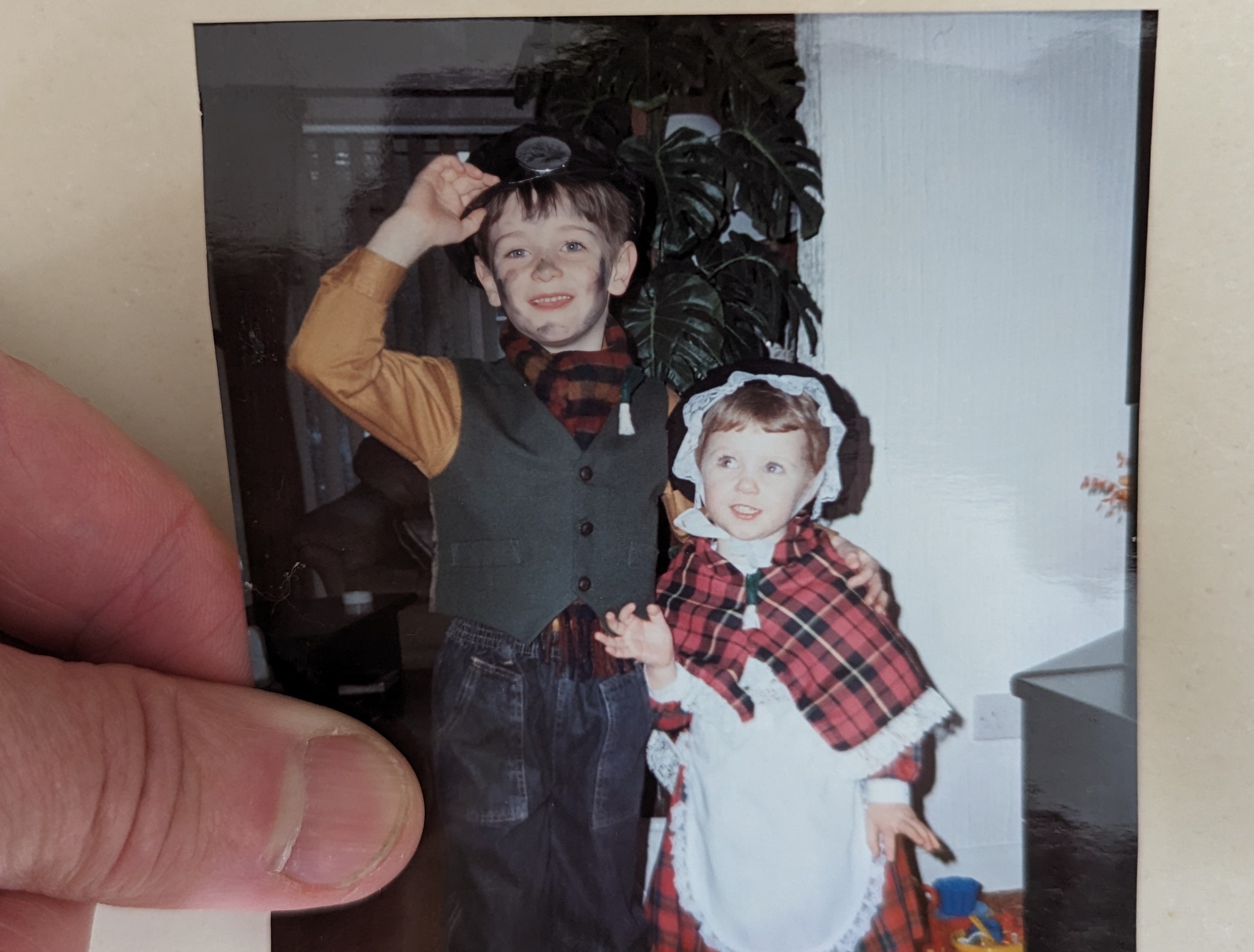While the Welsh government is trying to hit a target of one million speakers by 2050, places like Blaenau Gwent offer a challenge. Emily Janes heads out on a language walk in her hometown to find out what is needed to boost interest in Welsh.
Malcolm David reaches into his wallet and furtively pulls out his driving licence. “I’m not sure if this is legal, mind,” he says pointing to the small Welsh flag that he has cut and pasted over the Union Jack.
What looks looked like a thumbnail-sized form of rebellion is something much bigger, given Malcolm also doesn’t stand for God Save the King. After all, he’s Welsh. “Ideally I would not want to speak English,” says Malcolm. “I don’t want anything to do with England.”
This is why Malcolm learnt Welsh as an adult and why he was practising at a language group, with fellow learners and speakers, in Blaenau Gwent. Here, Malcolm and his fellow Welsh learners are in the minority with the effects of Welsh language decline still keenly felt. “In this area, which was Welsh-speaking 150 years ago, I think people think they’re Welsh, but they’ve lost their language,” Malcolm says. “We had it taken from us.”
This may be true for large parts of Wales to some degree but more so in the county of Blaenau Gwent, where the language continues to lag. According to data from the Annual Population Survey which covers from April 2022 to March 2023, there are just 11,200 estimated speakers in the county, the lowest of all 22 local authorities in Wales.
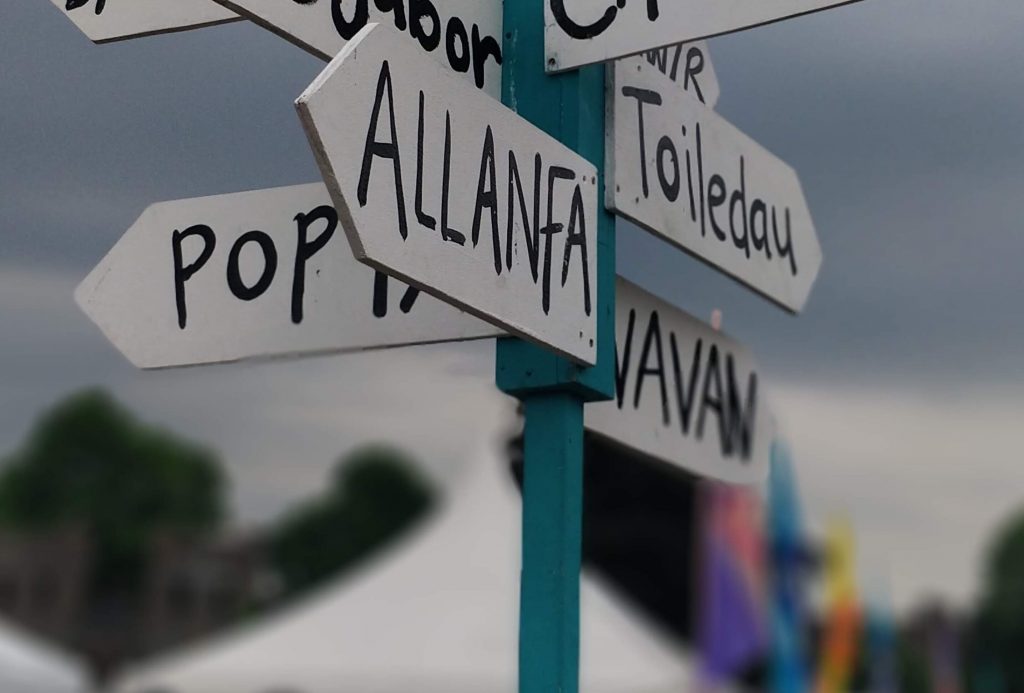
But the passion and pride of learners like Malcolm offer pockets of hope, a sign that it doesn’t always have to be this way. So, I went on a walk in my home town of Tredegar in Blaenau Gwent to find out more about what inspired these Welsh learners and what can be done to inspire others.
Bryn Bach Park is an anomaly in the heart of the Valleys, a dot of blue in an otherwise sea of green mountains and hills. Here, old fragments of industry, of the identity of the Valleys are hidden unless you look closely, the steep rugged hills mostly concealing the rows of terraced houses built for workers in the valley below, the blackened earth of the former working land paved over, the lake itself – once an opencast mining site – filled in.
This is where I met learners for a Welsh language walk. Malcolm David, a retired bus driver, Stephen Baghurst from Aberbeeg and France Finney, a retired teacher originally from Brynmawr all meeting up for a Welsh language walk and meetup run by Menter Iaith Blaenau Gwent, Torfaen and Monmouthshire.
From conversations about a recent holiday (ar wyliau) and the Welsh football team (tîm pêl-droed Cymru) life on the walk – and afterwards in the café – existed in Welsh. This was something I had never seen or heard, transforming my childhood park into a faraway land.
While Frances was “pissed off” her native Welsh-speaking grandmother never taught her Welsh and Malcolm may have been seen by some as a “fanatical” learner over his 20-plus years of learning, for Stephen learning Welsh was still a choice: “I wouldn’t subscribe to the view that everyone should learn and speak Welsh. As much as that would be very nice.”
This compromise may need to be more flexible in Blaenau Gwent, an area that has its own landscape, buildings, strong accent – and people. “Valley people think of themselves as different to everybody else,” says Malcolm. This may be because of the heritage of the area. “We’re a mongrel lot,” says Malcolm.
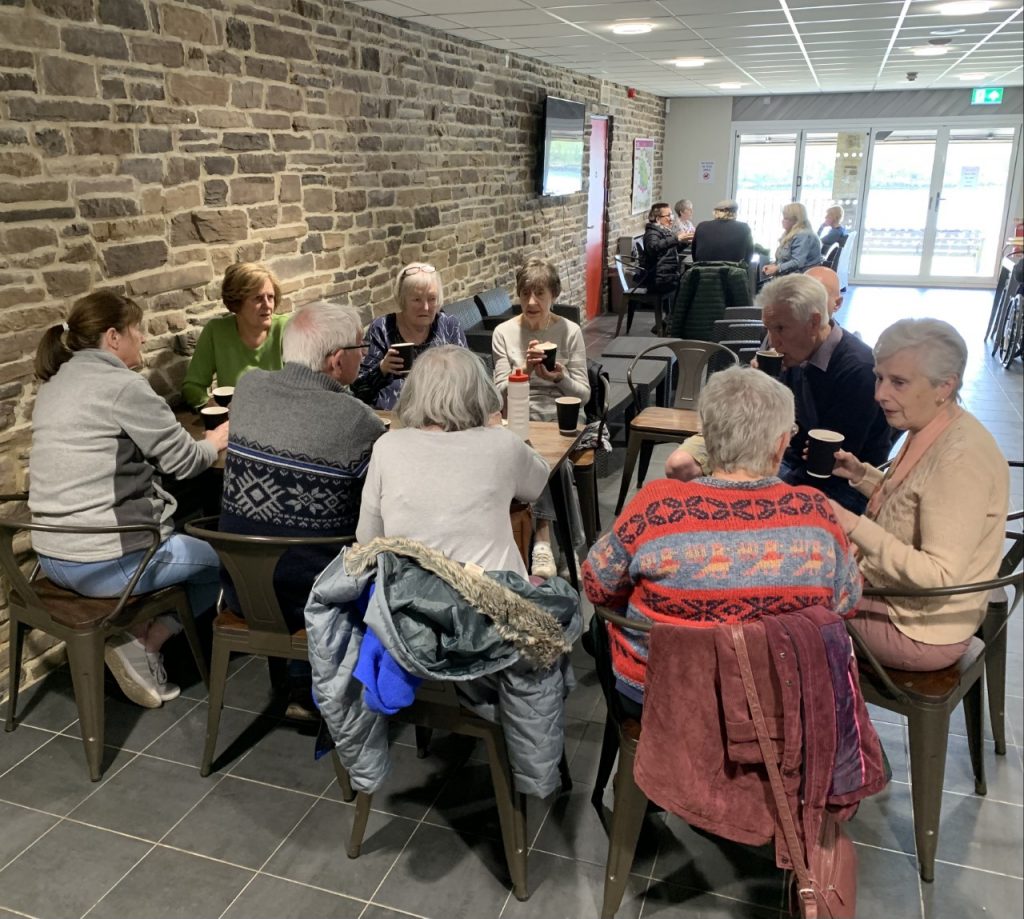
This so-called Valleys identity is rooted in history that traces back to the industrial expansion that began in the early 19th century when the South Wales Valleys produced coal, iron, slate. While Welsh remained the language of work for a time according to Malcolm this changed quickly: “When people moved in here from England to work in the pits in the early 1800s up to 1850 they had to learn Welsh because they worked down the pit and that was the language.”
At a certain point the need for workers, who were mostly from English-speaking areas, meant that Welsh stopped being the language of communication. “So many people come into work in this area to work in the pits and the ironworks, they swamped it,” says Malcolm.
This influx of workers is much closer to the truth than some prevailing stereotypes about the decline of Welsh. It was not like many would believe, “beaten out of our ancestors, by the by the English government who wanted to get rid of the Welsh language”, says Martin Johnes, professor of history at Swansea University.
Despite the existence of the Welsh Not, which was hung around the necks of children to stop them from speaking Welsh, reducing Welsh was never state policy or universal across schools. “Welsh declined, not because of anything governments did or didn’t do,” says Martin, adding that there were two reasons. “Number one, immigration from England changed the dynamics of communities – particularly in the south. And secondly, individuals chose to raise their children in the English language.” English was often seen as worldly and Welsh “backwards”.
However, while “education was not the primary reason the language declined – it was “part of the reason,” according to Martin. At a local level, this had an impact. Blaenau Gwent used to be in Gwent, one of just eight authorities in Wales between 1974 and 1996. During the 20 century the lines between counties dictated access to the Welsh language so much so that despite being just five miles apart, students in Tredegar, Gwent had no Welsh lessons while in Brynmawr, Powys, Welsh was taught.
While Welsh was integrated into the national curriculum under the Education Reform Act 1998 and the areas have since been redrawn into 22 local authorities, there is still a knock-on effect meaning that supply and demand for the Welsh language in Blaenau Gwent or Monmouthshire is low. “They were forced into it in this area,” Malcolm says. “They didn’t do it because they wanted to.” There are still just two Welsh medium schools in Blaenau Gwent – with the latest set to open in September 2023.
But some people, like Stephen, are driven by wanting what’s missing. “Human nature is if there’s something that you can’t have you tend to want it. And if there’s something that you can have easily you don’t value it. A bit like a forbidden fruit,” says Stephen. There is more to the idea of “forbidden” fruit – as sometimes Stephen feels like he is not welcome to speak the language. “I don’t use Welsh generally because sometimes people can get quite antagonised if you speak to them in Welsh,” says Stephen.
There isn’t a simple answer to why this happens but part of it could be fear of exclusion or persecution, “Sort of a resistance about it and a carry on from the age-old story ‘they were all speaking English before we came in,’” says Stephen. People may also feel put on the spot and caught off guard in a place they call home. “Sometimes the embarrassment is sort of masked by the antipathy toward it,” says Stephen.
This simmering disapproval may be the real reason Welsh-speaking children in the area, like Malcolm’s grandchildren, refuse to speak Welsh. They say it’s “not cool” or “a school language” but it could also be that what they see as a language of education is safer to speak behind a gate. Malcolm thinks there may be a solution – Welsh-speaking activities within the community.
Menter Iaith, which organises the walk and allows people to “ give them an opportunity to speak Welsh and to hear Welsh” provides lots of opportunities for people. Lewis Barber, community development officer, has arranged rock clubs in local schools where children can talk about songs by the Clash – but in Welsh.
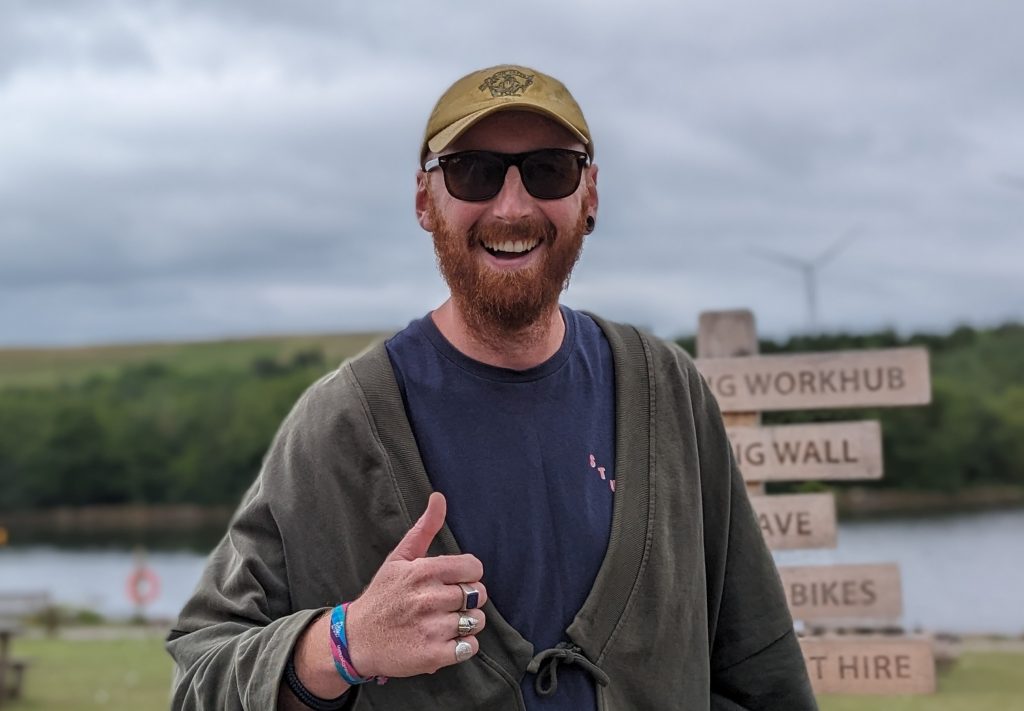
This happens not just in Blaenau Gwent but all across Wales. “Each county has got it’s own Menter Iaith division,” says Lewis, “our job is promoting the Welsh language.” There are targets provided by the Welsh Government for the organisation to try and hit but this can be done however they see fit – from Skype lessons, to quizzes, and of course the walk in the park it’s “whatever is more engaging is better”, says Lewis.
Paul Janes – regularly referred to by the author as Dad – isn’t a Welsh learner or speaker and thinks that in a place like Blaenau Gwent, the wider picture is important. “In Cardiff and the Vale, the aspirations are completely different,” he says. “Professional jobs, kids have to go to University.”
“In this area the general environment is not conducive to learning something voluntarily, like Welsh,” he says. “You might learn an NVQ or GCSE or two, with that you might get out or you might get a better job.” Though there has been an increase in employment in the area, with a rise from 48.2% in 2011 to 51.1% in 2021 there is an overhang from to entrenched Thatcherite policies which caused steel and coal industries to shut. “They never solved the problem of turning an industrial Valley area into a non-industrial, medium to high area,” says Paul.
In the Valleys, the identity is rooted in struggle, in hard-working people who have been left behind. As Paul says: “It was hard working, good community, solid people, chapel going,” he says. And people see this identity, without the Welsh language, as equally valid. “You should still be proud to be from this area. But for the right reasons,” says Paul. “I think there is still a community here.”
So, a Welsh identity which involves the language can feel like a distant notion. “I think it’s about perception,” says Paul. “Welsh language is linked to Welsh nationalism is linked to Plaid Cymru is linked to north [and] west Wales. And it’s nothing to do with us.”
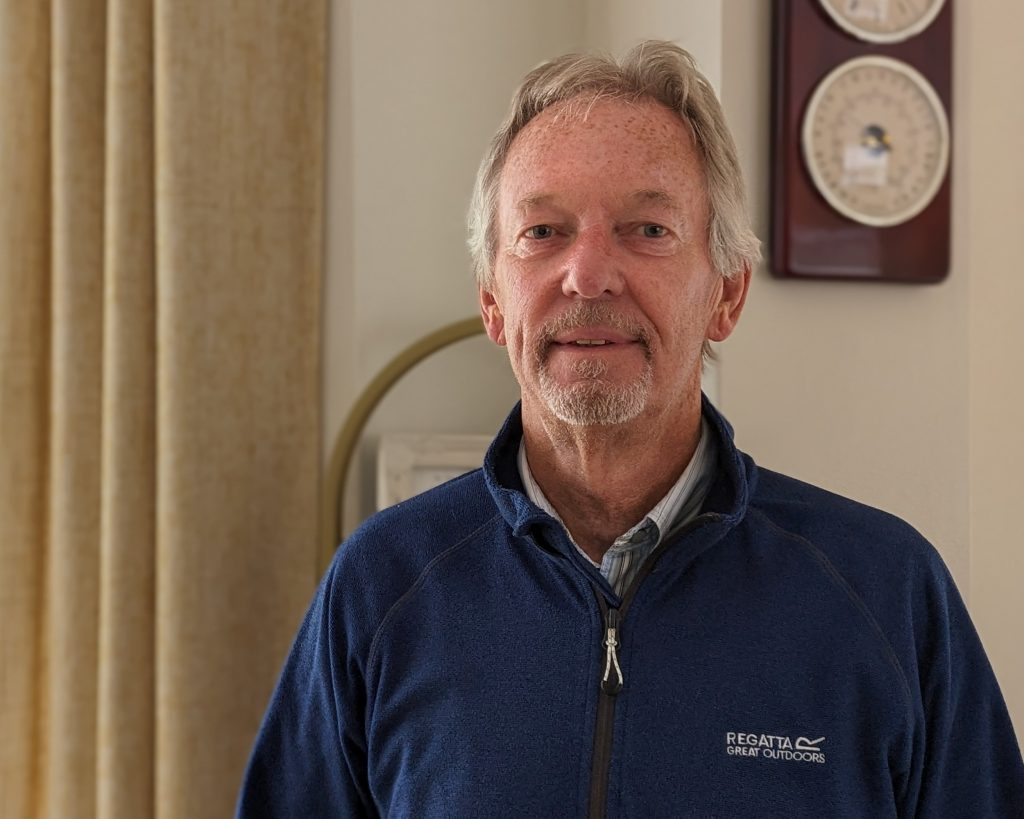
While the percentage of Welsh speakers in Blaenau Gwent fell from 7.8% in 2011 to 6.2% in 2021, according to the census, it still brings benefits to learners in this area. For Malcolm, it’s making friends. “I’ve made friends with people from everywhere,” he says. “There’s a woman who lives just over the border and I met her on a course in Harlech and it’s like pen pals and we write in Welsh.”
For Stephen, it taught him history and gave him a deeper understanding of the country he loves. “I learnt far more about Welsh history and Welsh culture that I was completely oblivious to before,” he says. And this could be beneficial on a bigger scale, a piece of the jigsaw – if people understand more about Wales in general and about the decline of the language maybe they’ll feel that learning Welsh is important. “I want to learn about Owain Glyndŵr and Llewellyn Fawr. I don’t want to learn about Drake or Nelson,” says Malcolm, “I want Welsh history.”
Now, the Welsh Government, under the co-operation agreement with Plaid Cymru, have implemented the Curriculum for Wales. This means Welsh history is now more prominent with all children receiving “consistent exposure to the story of their locality and the story of Wales”.
Malcolm would approve as for him the hope for the Welsh language lies with the younger generations. “I really do think the survival of the Welsh language is with the young and not people like me,” says Malcolm.
But there is still a place for adult learners too. Stephen recalls that only recently a customer in the café came up and told the group how lovely it was to hear Welsh in Tredegar. And Stephen’s teacher also sees adult learners as the “saviours of the language”. And so, maybe in a place like Blaenau Gwent, every learner counts. Even if that current count is only 11, 200.
